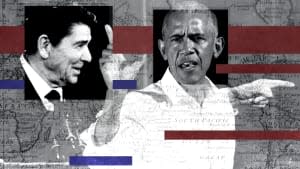The strongest evidence yet that the neoliberal era is over
- Oops!Something went wrong.Please try again later.
- Oops!Something went wrong.Please try again later.

Joe Manchin's stance on the filibuster might get a lot more people talking, and negotiations over Joe Biden's spending bills might garner far more attention from the Washington press corps, but a bill poised to pass the Senate on Tuesday by a wide bipartisan margin is arguably a far bigger story than either. The New York Times calls it "the most expansive industrial policy legislation in U.S. history," and it may be the strongest evidence yet that the neoliberal era in American politics is dead and buried.
From the Reagan administration on down through the Obama years, both parties inclined toward favoring free trade. The rationale was two-fold. Dropping barriers to trade — opening markets to goods and labor — would lead to economic growth that would benefit everyone. It would also help to plant seeds of political liberalism in places that had so far resisted the lure of the open society.
The left was always somewhat skeptical of the first claim, because of the tendency of free trade to encourage companies to ship high-paying jobs overseas. Donald Trump won the presidency in 2016 in part by taking up such arguments from the right. Half a decade later, the position has largely carried the day on both sides of the aisle.
But what's really tipped the scales is a collapse of faith in the second set of arguments — about the power of open markets to spread political liberalism, with China the main catalyst of the decline. The new bill is primarily about giving the United States an added edge in commercial and military competition with Beijing at a time when China is widely viewed as our greatest geopolitical adversary and economic rival.
No longer believing that free trade will bring China into the fold of the U.S.-led liberal international order, we now firmly favor putting America, and American manufacturing and research, first. That is an enormous change from 20 years ago — and the biggest sign yet that the neoliberal moment in American politics is over, with a new, more nationalist era still rising.
